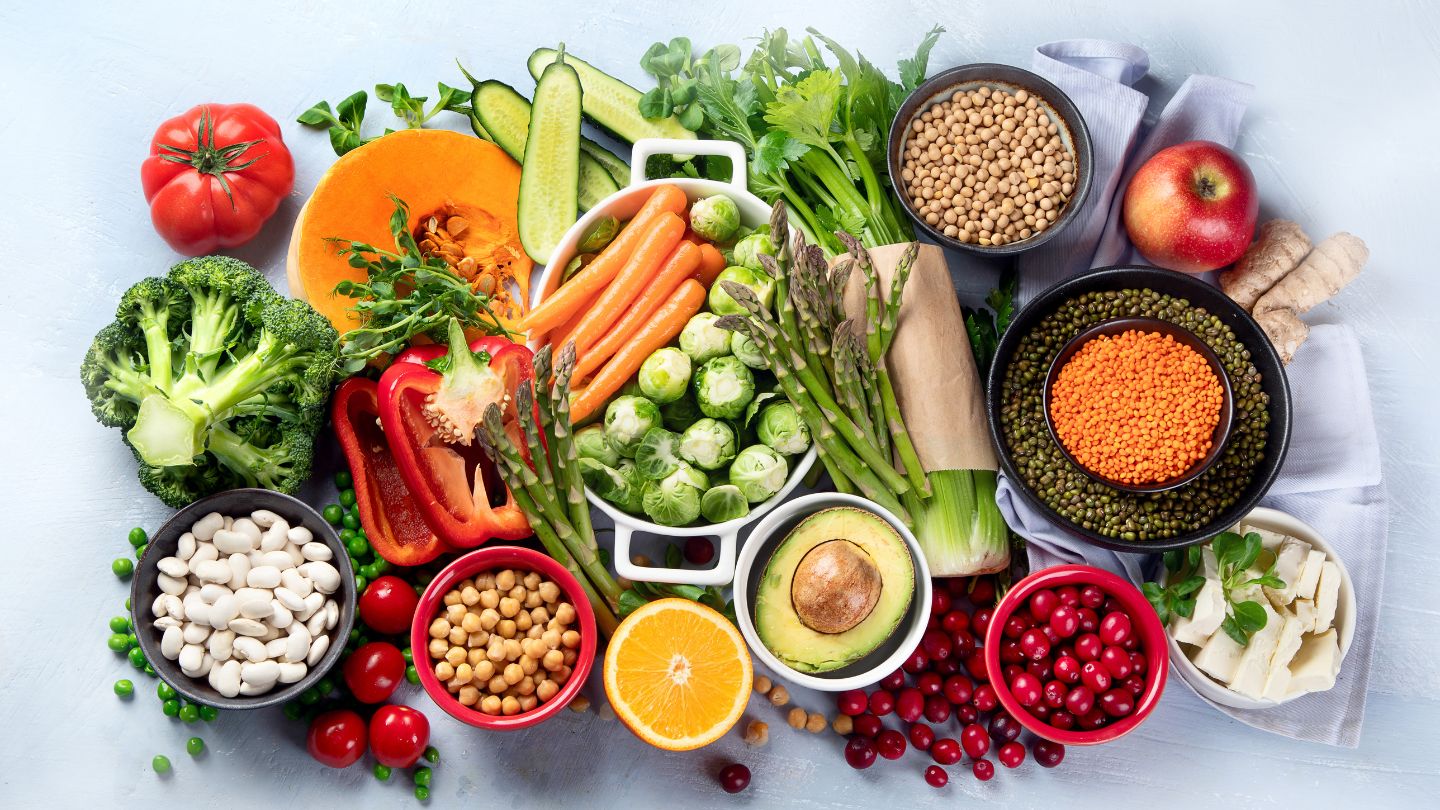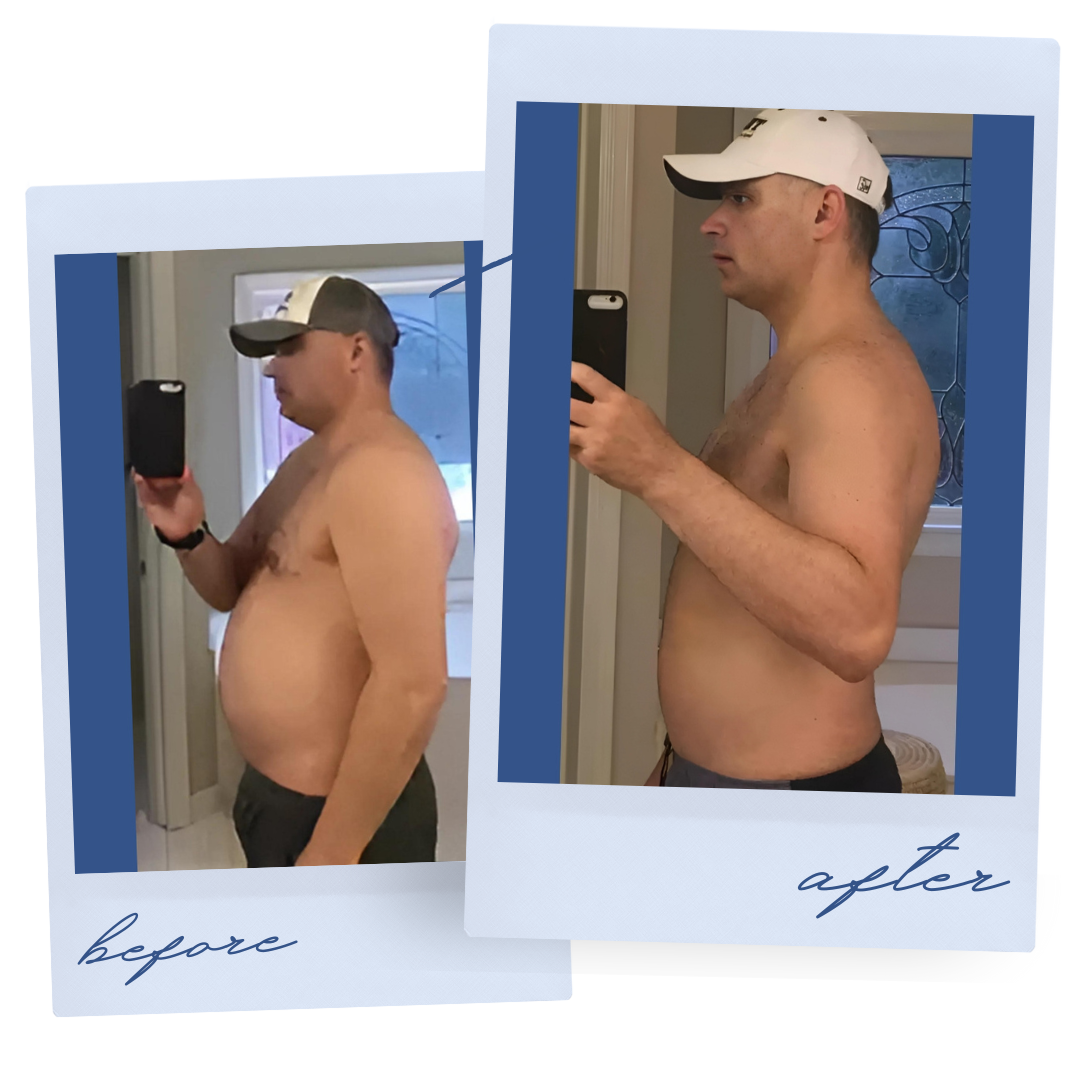The HCG diet combines a very low-calorie intake with HCG hormone injections to help the body utilize fat stores for energy. Developed by Dr. Albert Simeons, this method promotes rapid weight loss while preserving muscle mass. In this blog, we’ll explore how the HCG diet works, its phases, and its benefits, guiding you to make an informed decision.
Key Takeaways
- The HCG diet combines a very low-calorie intake (500-800 calories) with HCG hormone injections to promote rapid and effective weight loss while preserving muscle mass.
- The diet is structured into phases: loading, weight loss, and maintenance, each designed to facilitate significant weight loss and support long-term weight management.
- Medical supervision is highly recommended when following the HCG diet to ensure it is safe and effective while maximizing its benefits with professional guidance.
Understanding the HCG Diet
The HCG diet is designed to aid individuals suffering from obesity in tapping into their fat reserves for energy purposes. The regimen encompasses a highly restrictive caloric consumption ranging from 500 to 800 calories each day and pairs this with injections of the HCG hormone. Adopting this method aims to prompt the body’s reliance on accumulated fat while maintaining lean muscle mass, thereby leading to substantial reductions in weight.
The Role of Human Chorionic Gonadotropin (HCG)
The hormone known as Human Chorionic Gonadotropin (HCG), which is pivotal in early pregnancy, facilitates the functioning of the corpus luteum and promotes progesterone synthesis. Both genders produce HCG, which notably contributes to weight management by redistributing body fat and curbing appetite. Within an HCG diet framework, this hormone assists in mobilizing fat reserves for energy use, thus supporting adherence to a regimen that significantly restricts calorie intake.
Incorporating HCG into one’s diet is thought to recalibrate metabolic processes, potentially enabling individuals to reach and sustain a healthy weight more effectively. The benefits of this hormone extend beyond simple weight reduction. It also preserves muscle mass during the process of losing weight – offering advantages for both male and female dieters. For males specifically, elevated testosterone levels induced by HGC can be instrumental in maintaining muscularity while shedding unwanted pounds.
Phases of the HCG Diet
Each phase within the HCG diet plays an essential role in ensuring successful weight reduction. The process encompasses a loading phase, followed by a weight loss stage, and culminates with a maintenance period. Adhering to these stages meticulously allows individuals to enhance their results from the diet and establish the groundwork for sustained management of body weight.
Comprehending the details pertaining to each individual phase helps illuminate the respective importance and advantages they contribute towards achieving one’s desired outcomes on this dietary plan.
Loading Phase
The initial loading phase lasts two to three days and involves consuming high-calorie, healthy fats. This phase prepares the body for the upcoming calorie restriction by filling fat stores and alleviating future hunger.
Individuals are encouraged to eat foods rich in fat for a smoother transition to the very low-calorie diet that follows.
Weight Loss Phase
The HCG diet’s principal phase, geared towards weight loss, entails adhering to a very low-calorie regimen with merely 500 calories consumed per day alongside the administration of HCG. Spanning between three to six weeks, this period emphasizes the consumption of lean meats and an array of vegetables while incorporating a small selection of fruits. All are aimed at delivering vital nutrients within the stringent limits on caloric intake that are instrumental in achieving considerable reductions in weight.
When merged with a strict low-calorie diet plan over an extended timeframe, HCG amplifies fat reduction by compelling the body to tap into its stored reserves for energy. This synergy is pivotal for facilitating swift and substantial declines in both overall mass and body composition changes. Thus, utilizing HCG as part of a concerted effort toward shedding pounds can markedly augment the success rate of this dietary strategy.
Maintenance Phase
The maintenance phase sustains the weight loss achieved during the diet. Calorie intake is gradually increased, reintroducing carbohydrates and fats to stabilize metabolism. Depending on weight loss goals and commitment to a healthy lifestyle, this phase can last several months or even years.
Regular check-ins with a healthcare provider during the maintenance phase support ongoing weight management and prevent weight regain. Avoiding processed foods and refined sugars is crucial to maintaining weight loss. Following a balanced diet and monitoring progress ensures long-term success in losing weight.
Benefits of the HCG Diet
Advocates for the HCG diet assert that it promotes swift weight loss, with individuals commonly shedding 1–2 pounds each day without experiencing hunger. It is thought to boost fat oxidation, reduce appetite, and foster better metabolic health. Significant numbers of people have recounted considerable weight reduction and a sense of enhanced wellness.
One standout advantage attributed to the HCG diet is its reported ability to maintain muscle mass while targeting fat stores for energy. Proponents argue that HCG bolsters metabolism and aids in resetting one’s metabolic functions, paving the way for enduring weight loss. By merging a low-calorie intake regimen with HCG supplementation, remarkable shifts in body composition are achieved, which help lay the groundwork for long-lasting management of one’s weight.
Dietary Restrictions and Approved Foods
Adhering to the HCG diet involves stringent dietary rules, necessitating a daily consumption of merely 500 calories. Acceptable sources of protein include extra lean beef varieties, poultry, seafood, and vegetarian options such as tofu. The plan permits one cup of specific vegetables like broccoli, cucumbers, and spinach with each meal. Participants may include two fruit servings in their daily regimen, from apples, strawberries, or grapefruit. Mindful adherence to the HCG diet limits is crucial for success.
The emphasis on hydration within the HCG diet is paramount—participants are urged to drink plenty of water while also enjoying coffee and tea, provided they abstain from introducing sugar or creamer additions. For seasoning meals without violating caloric limitations, herbs, and natural spices are recommended.
Commitment to these principles ensures that individuals consume foods rich in nutrients despite being limited by an ultra-low calorie intake regime, thereby adhering faithfully to this strict low-calorie protocol.
Importance of Medical Supervision
Starting the HCG diet with guidance from a healthcare professional helps ensure the program is perfectly tailored to your needs. Personalized medical evaluations, including health history and routine check-ups, help customize your weight loss journey.
Throughout the HCG program, you’ll receive weekly support and guidance to build healthy eating habits. Regular check-ins and progress tracking keep you on track and motivated.
With expert supervision and HCG injections, the program offers a smooth and effective path to achieving your weight loss goals.
Maintaining Weight Loss After the HCG Diet
Transitioning to a balanced, healthy diet is essential after concluding the HCG diet in order to sustain weight loss. It’s important to gradually elevate your caloric intake but with an emphasis on foods rich in nutrients, which aids in metabolic stabilization and helps ward off any rebound gains in weight. Aim for a daily calorie count that’s appropriate for maintaining your newly achieved body weight rather than slipping back into former eating patterns.
To preserve the progress made through the HCG diet and continue improving muscle tone, engaging regularly in physical activities is vital. The maintenance phase of this regimen should include ongoing support from healthcare professionals, monthly doses of B complex vitamins, and modifications to the frequency at which Lipotropic injections are administered as needed. Adhering to these steps can lead not only to sustained success post-diet but also potentially enhance Weight reduction efforts over time.
Final Thoughts On The HCG Diet
The HCG diet offers a structured and effective approach to achieving weight loss by combining HCG hormone injections with a carefully monitored, low-calorie meal plan. By following its phased protocol and transitioning to a balanced diet, individuals can experience significant weight loss and potential metabolic improvements over time. However, the success and safety of this diet rely on professional oversight, making it essential to consult experts who can tailor the plan to your needs.
At Atlanta Medical Institute, we specialize in helping individuals achieve their health and weight loss goals with personalized solutions. If you’re looking for guidance and expert care for HCG weight loss in Atlanta, our team is here to assist. Take the first step toward a healthier you—schedule your consultation today and let us help you on your journey to transformative results!
Frequently Asked Questions
What is the purpose of the loading phase in the HCG diet?
The loading phase of the HCG diet, which lasts 2–3 days, is designed to prepare your body for the subsequent calorie restriction by consuming high-calorie, healthy fats.
This phase is crucial for successful weight loss during the diet.
How much weight can I expect to lose on the HCG diet?
You can expect to lose 1-2 pounds daily on the HCG diet, but individual results may vary significantly.
Why is medical supervision important for the HCG diet?
Medical supervision ensures the HCG diet is tailored to your unique health needs, making the process safe and effective. With ongoing monitoring and support, you can confidently follow the regimen while staying on track toward your goals.
This guidance helps you embrace dietary changes with peace of mind and maximizing benefits.







